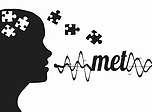Childhood Speech & Language

Articulation
Certain sounds can be difficult for some children to pronounce..

Language Based Learning Difficulties
Language based learning difficulties can result in a child falling behind..

Early Childhood Intervention
Children between the ages of 2 & 5 years benefit the most..

FAQ's & Literacy Skills
Most common questions & a resource for speech or language delays..
Articulation
In simple terms…
Articulation refers to the way sounds are produced
Some children have difficulty learning to produce certain sounds. Some common sounds that are difficult to produce include s, r, l. This can be frustrating and embarrassing for the child and result in teasing. For some children, their speech is not understood by others.
Most articulation errors can be corrected with a systematic, consistent approach to treatment. The longer the articulation error exists, the more resistant it is to modification so early intervention is important. Articulation errors usually require a shorter course of treatment than many other difficulties.
When Should I Worry If My Child Is Behind?
Warning Signs:
Friends and family have a difficult time understanding your child
Your child becomes frustrated when you do not understand his/her message
Language Based Learning Difficulties
In simple terms…
Language is how you develop ideas and formulate sentences

Language based learning difficulties often result in difficulties with the school curriculum. Children with these difficulties show deficits in one or all of the following areas: speaking, understanding, reading and writing.
In speaking, children have difficulty finding the right word, expanding vocabulary as new topics are introduced, formulating good sentences, sequencing events and retelling stories. In understanding, they may have difficulty following instructions, understanding jokes and sarcasm and understanding grammar.
In reading, they may have difficulty decoding words, comprehending stories, making predictions and inferences. In writing, they may have difficulty putting their thoughts on paper, using spelling and grammar correctly and linking paragraphs.
Young children may have difficulty acquiring speech and language skills as listed above. Mistakes can often be part of this process. Some children will correct their mistakes over time, while others will continue to struggle. If this is the case, your child may benefit from speech and language therapy.
A speech-language pathologist will develop a comprehensive plan of treatment to develop core language based skills and address the interaction between language based skills and cognition.
Early Childhood Intervention
Between the ages of 2 and 5 years, children demonstrate the greatest growth in speech and language development. There is much variability in language development but most two years olds are able to put 2 words together to form simple sentences. Between 2 and 3 years of age, children add about 450 words to their vocabulary and significantly increase their sentence length and complexity.
Vocabulary grows by between 1000 to 1500 words between the ages of 3 and 5 years and children add more complex sentence structures, understand past versus present tense, understand concepts such as colour, shape and size, and can retell stories and events. Most estimates suggest that approximately 10 percent of preschool children have some speech and/or language delay.
Studies show that early intervention is important for maximizing development and minimizing the effect of speech and language delay on later performance and achievement.
Oral Motor Development Milestone Chart:
Milestones & Warning Signs For Speech & Language Development Chart:
Frequently Asked Questions
What is the underlying cause of speech or language delay?
Delays in speech and language skills can be associated with the following factors:
- genetic
- physical
- environmental
*keep in mind that obvious causes are often difficult to point out
The following group of special populations are more likely to face communication disorders:
- children with autism
- children with genetic syndromes
- children with physical problems such as: cerebral palsy, cleft palate, developmental delays and hearing loss
Note: Prenatal and perinatal factors can also be contributing factors to a potential speech or language delay in the child
Why bother with therapy if my child might eventually outgrow their speech delay?
If the child’s speech and language disorder is prominent, it is not likely that they will be able to outgrow it. Whether their difficulty is subtle or profound, these difficulties will have an impact on their future learning capacity, literacy, and social-emotional development. In the absence of treatment, a child’s academic and eventual vocational capabilities are compromised, although with that said, it is never too late to get involved in speech therapy.
How long before therapy results in a measurable difference?
Articulation therapy (sound pronunciation problems): relatively short term
Language Disorder: generally longer term
Therapy for stuttering: long-term follow up
Literacy Skills
Phonological awareness, which is the ability to recognize and manipulate sounds in spoken language, is the foundation for learning to read. Many children develop these skills naturally where others struggle, an early sign that learning to read may be challenging. Reading comprehension relies on good vocabulary and language processing. Since spoken language provides the foundation for reading and writing, speech-language pathologists are uniquely positioned to support growth and literacy. Mary Ellen‘s interest in reading development and her experience working at the Sagonaska Demonstration School provides a platform to assist individuals with challenges in literacy.
Sagonaska Demonstration School
Visit the Ministry of Education Provincial and Demonstration Schools Branch website to learn more.
Office
11 Bay Bridge Road, Unit 216,
Belleville ON, K8P 3P6
Monday to Thursday : 8:30am – 6pm
Friday : 8:30am – 4pm
Phone : (613) 961-1719
